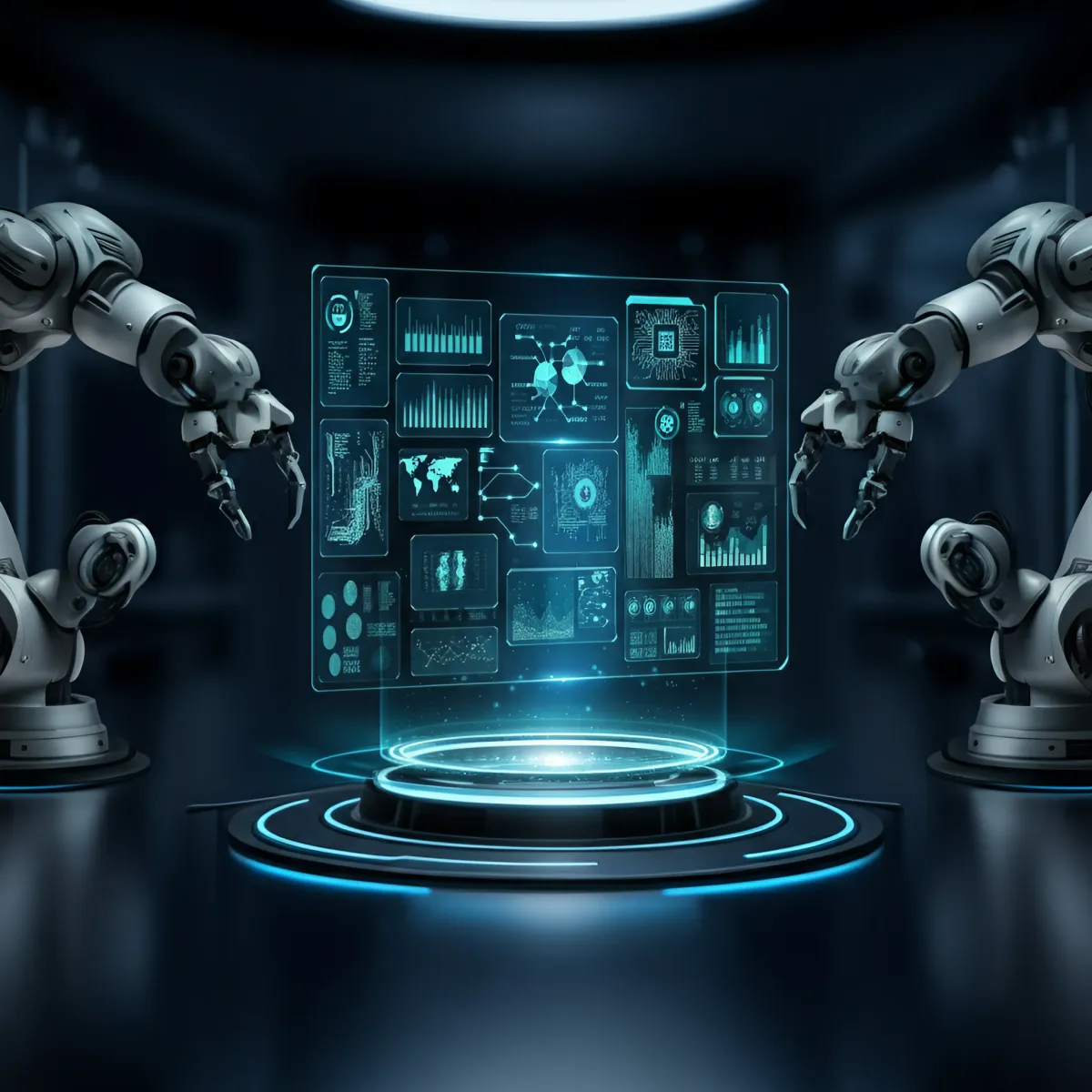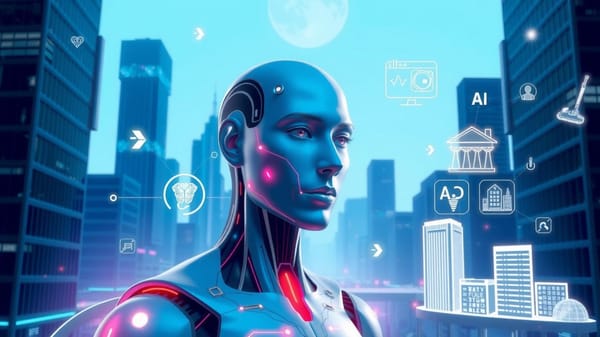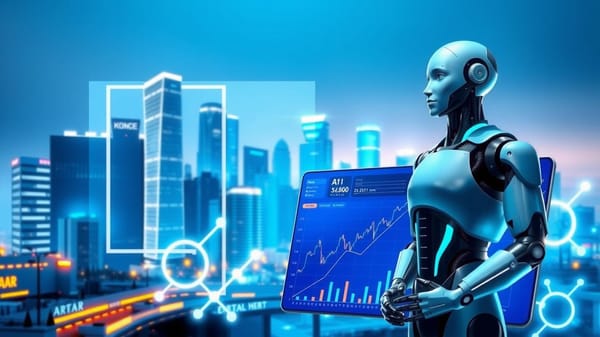The Rise of AI-Only Companies: Can Businesses Thrive Without Employees?
AI-only companies operate entirely with advanced systems, automating decision-making, marketing, logistics, and more. While offering cost efficiency, scalability, and 24/7 operations, they spark debates about ethical concerns, human roles, and the future of entrepreneurship.

Artificial intelligence (AI) is no longer just a support tool for businesses; it’s now steering a revolutionary trend where companies operate entirely without human employees. Known as “AI-only companies,” these businesses redefine operational efficiency by employing intelligent systems to handle tasks traditionally completed by humans. But can a business thrive without a single employee on its payroll? This blog explores the rise of AI-only companies, their potential, challenges, industries adopting this model, and the implications for entrepreneurship and the workforce.
What Are AI-Only Companies?
AI-only companies are fully automated businesses that rely entirely on AI technology to operate. From decision-making and customer service to supply chain management and marketing, every function is handled using advanced AI systems.
Characteristics of AI-Only Companies:
- AI-Powered Decision-Making: Machine learning algorithms analyze data and make strategic decisions.
- Automated Operations: Tasks such as product recommendations, pricing, and logistics are managed without human intervention.
- Self-Learning Systems: AI continuously refines processes through intelligent learning methods.
This shift is made possible by breakthroughs in AI technologies like generative AI (e.g., ChatGPT), advanced robotics, and predictive analytics. While fully autonomous companies are still rare, industries such as finance, e-commerce, and content creation have started exploring AI-driven business models.
How Businesses Operate Without Employees
AI-only companies can manage key business functions with unparalleled precision and speed. Here’s how they handle core operations:
1. Customer Support
AI tools like chatbots and virtual assistants handle customer inquiries 24/7. For example:
- ChatGPT and Google Bard resolve issues instantly.
- Zendesk’s AI tools handle high-volume customer engagements. While they excel at routine queries, human representatives may still be required for emotionally sensitive cases.
2. Marketing
AI platforms can create and optimize campaigns faster and more effectively:
- Tools like Jasper AI and Acrolinx generate personalized ad content.
- Predictive analytics ensure marketing budgets are spent efficiently by targeting high-potential leads.
3. Supply Chain and Logistics
AI automates inventory management and optimizes delivery routes:
- Companies like Amazon utilize robotic warehouses, while drones handle shipping.
- Predictive systems prevent supply disruptions by forecasting demand accurately.
4. Content Creation
Generative AI tools are reshaping industries dependent on creative output:
- MidJourney creates stunning visuals.
- Synthesia generates videos from text instructions.
- Jasper AI crafts engaging written content tailored to specific audiences.
These applications position AI as a workforce substitute, enabling businesses to maintain continuous operations with minimal human oversight.
The Benefits of an AI-Only Business Model
Fully autonomous businesses provide significant advantages:
1. Cost Efficiency
Without salaries, insurance, and other employee-related expenses, AI-only companies can save substantially on operational costs.
2. Scalability
AI systems easily adapt to increasing demands without the need for additional staff, making expansion seamless.
3. 24/7 Operations
AI ensures round-the-clock productivity, eliminating breaks or downtime.
4. Consistency
Unlike humans, AI systems deliver uniform results, reducing errors caused by fatigue or variability.
5. Faster Decision-Making
AI analyzes large datasets in real time, enabling quicker and more precise decision-making. This can offer a significant edge in competitive industries.
These advantages make AI-only companies highly attractive for entrepreneurs aiming to build efficient, lean businesses.
Challenges and Limitations of AI-Only Companies
Despite their potential, AI-only businesses face significant hurdles:
1. High Initial Investment
Setting up robust AI systems requires significant upfront capital. Maintenance and updates also add to long-term expenses.
2. Data Dependence
AI relies on high-quality, unbiased data to function effectively. Poor data inputs can lead to flawed outcomes and unreliable decision-making.
3. Cybersecurity Vulnerabilities
Without proper oversight, AI systems remain susceptible to hacking, data breaches, and exploitative behaviors.
4. Ethical Dilemmas
Job displacement due to automation raises societal concerns. Additionally, decision-making transparency becomes a challenge in AI-led businesses.
5. AI Limitations
Certain tasks, such as abstract problem-solving, creative thinking, and emotional intelligence, remain beyond AI’s capabilities. Human oversight may still be required in complex or unforeseen scenarios.
Industries Pioneering AI-Only Business Models
Several industries are leading the transition toward AI-driven operations:
- Finance and Trading
- AI algorithms manage high-frequency trading with remarkable accuracy.
- Machine learning models enhance fraud detection.
- E-Commerce
- Dynamic pricing tools and personalized product recommendations are AI-driven.
- Autonomous warehouses streamline inventory handling.
- Content Creation
- AI tools generate blogs, videos, and social media content at scale, reducing reliance on human creators.
- Logistics
- Companies like Tesla and FedEx use AI for route planning and autonomous deliveries.
- Customer Service
- Automated platforms handle a growing share of inquiries, positioning retail and tech sectors as frontrunners in AI adoption.
The Debate on Human Roles in AI-Only Businesses
AI-only companies spark discussions about the necessity of human involvement in business.
Scenarios Where AI Falls Short:
- Creative Problem-Solving: Innovation often stems from human intuition and abstract thinking.
- Empathy and Human Connection: Certain industries, such as healthcare and counseling, rely heavily on emotional intelligence.
- Ethical Decision-Making: Humans provide necessary judgment during ethically complex situations.
Hybrid models, combining AI capabilities with human creativity and oversight, may present a balanced alternative.
Future Implications for Entrepreneurs
AI-only companies open new opportunities for aspiring entrepreneurs:
- Low Barrier to Entry: Entrepreneurs can launch businesses without the need for large teams, leveraging AI to scale operations.
- Solopreneurs: Individuals can manage entire businesses independently, supported by intelligent tools.
However, these developments also demand conscientious consideration of societal impacts, such as job displacement and the ethical use of AI.
The Road Ahead for AI-Only Companies
AI-only companies hold immense potential to redefine business landscapes. However, challenges like ethical dilemmas, regulatory uncertainties, and technical limitations caution against an over-reliance on automation. Businesses are more likely to adopt hybrid models, blending human decision-making with AI efficiency to achieve sustainable success.
For entrepreneurs and organizations, the key takeaway is simple yet powerful: AI is not a replacement for human ingenuity but a tool to amplify it. The future of business belongs to those who strike the right balance between technological innovation and the invaluable human touch.
Your Next Move: Join Plutus+
AI is powerful, but knowing how to use it is the key. That’s where Plutus+ comes in.
- 🔓 Get exclusive step-by-step guides for AI-powered business strategies.
- 📊 Access monthly reports on automation trends and income hacks.
- 💼 Discover proven strategies used by top-earning solopreneurs.
- 💬 Join a private mastermind community for ongoing support.
Start your 3-day free trial today: www.plutusplus.com



